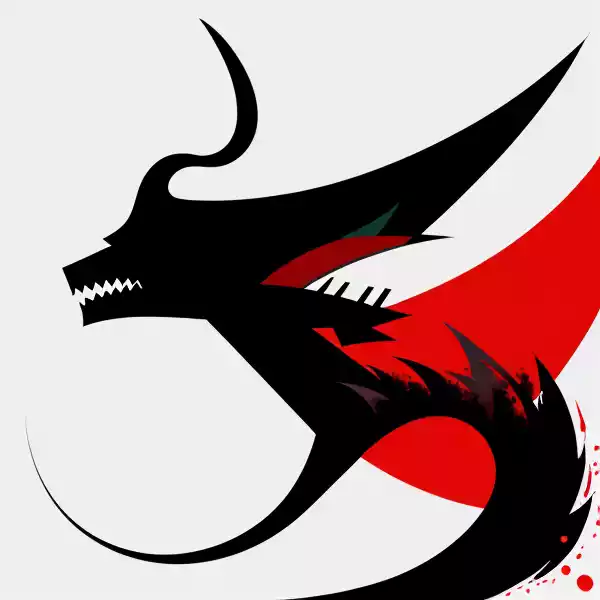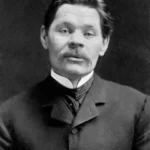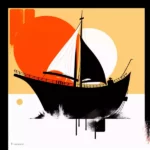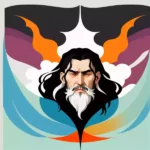 | |
Tchelkache | |
| Author | Maxim Gorky |
|---|---|
| Published |
1897
|
| Language | English |
| Original Language | Russian |
| Nationality | Russian |
| Genre | Russian Literature, Socialist Realism |
1897 Short Story
Tchelkache
Tchelkache is an English Russian Literature, Socialist Realism short story by Russian writer Maxim Gorky. It was first published in 1897. We provide an alternate translation of this story as a novella, Chelkash.
Tchelkache
by Maxim Gorky
The sky is clouded by the dark smoke rising from the harbor. The ardent sun gazes at the green sea through a thin veil. It is unable to see its reflection in the water so agitated is the latter by the oars, the steamer screws and the sharp keels of the Turkish feluccas, or sail boats, that plough the narrow harbor in every direction. The waves imprisoned by stone walls, crushed under the enormous weights that they carry, beat against the sides of the vessels and the quays; beat and murmur, foaming and muddy.
The noise of chains, the rolling of wagons laden with merchandise, the metallic groan of iron falling on the pavements, the creaking of windlasses, the whistling of steamboats, now in piercing shrieks, now in muffled roars, the cries of haulers, sailors and custom-house officersall these diverse sounds blend in a single tone, that of work, and vibrate and linger in the air as though they feared to rise and disappear. And still the earth continues to give forth new sounds; heavy, rumbling, they set in motion everything about them, or, piercing, rend the hot and smoky air.
Stone, iron, wood, vessels and men, all, breathe forth a furious and passionate hymn to the god of Traffic. But the voices of the men, scarcely distinguishable, appear feeble and ridiculous, as do also the men, in the midst of all this tumult. Covered with grimy rags, bent under their burdens, they move through clouds of dust in the hot and noisy atmosphere, dwarfed to insignificance beside the colossal iron structures, mountains of merchandise, noisy wagons and all the other things that they have themselves created. Their own handiwork has reduced them to subjection and robbed them of their personality.
The giant vessels, at anchor, shriek, or sigh deeply, and in each sound there is, as it were, an ironical contempt for the men who crawl over their decks and fill their sides with the products of a slaved toil. The long files of ‘longshoremen are painfully absurd; they carry huge loads of corn on their shoulders and deposit them in the iron holds of the vessels so that they may earn a few pounds of bread to put in their famished stomachs. The men, in rags, covered with perspiration, are stupefied by fatigue, noise and heat; the machines, shining, strong and impassive, made by the hands of these men, are not, however, moved by steam, but by the muscles and blood of their creatorscold and cruel irony!
The noise weighs down, the dust irritates nostrils and eyes; the heat burns the body, the fatigue, everything seems strained to its utmost tension, and ready to break forth in a resounding explosion that will clear the air and bring peace and quiet to the earth againwhen the town, sea and sky will be calm and beneficent. But it is only an illusion, preserved by the untiring hope of man and his imperishable and illogical desire for liberty.
Twelve strokes of a bell, sonorous and measured, rang out. When the last one had died away upon the air, the rude tones of labor were already half softened. At the end of a minute, they were transformed into a dull murmur. Then, the voices of men and sea were more distinct. The dinner hour had come.
* * * * *
When the longshoremen, leaving their work, were dispersed in noisy groups over the wharf, buying food from the open-air merchants, and settling themselves on the pavement, in shady corners, to eat, Grichka Tchelkache, an old jail-bird, appeared among them. He was game often hunted by the police, and the entire quay knew him for a hard drinker and a clever, daring thief. He was bare-headed and bare-footed, and wore a worn pair of velvet trousers and a percale blouse torn at the neck, showing his sharp and angular bones covered with brown skin. His touseled black hair, streaked with gray, and his sharp visage, resembling a bird of prey’s, all rumpled, indicated that he had just awakened. From his moustache hung a straw, another clung to his unshaved cheek, while behind his ear was a fresh linden leaf. Tall, bony, a little bent, he walked slowly over the stones, and, turning his hooked nose from side to side, cast piercing glances about him, appearing to be seeking someone among the ‘longshoremen. His long, thick, brown moustache trembled like a cat’s, and his hands, behind his back, rubbed each other, pressing closely together their twisted and knotty fingers. Even here, among hundreds of his own kind, he attracted attention by his resemblance to a sparrow-hawk of the steppes, by his rapacious leanness, his easy stride, outwardly calm but alert and watchful as the flight of the bird that he recalled.
When he reached a group of tatterdemalions, seated in the shade of some baskets of charcoal, a broad-shouldered and stupid looking boy rose to meet him. His face was streaked with red and his neck was scratched; he bore the traces of a recent fight. He walked along beside Tchelkache, and said under his breath:
“The custom-house officers can’t find two boxes of goods. They are looking for them. You understand, Grichka?”
“What of it?” asked Tchelkache, measuring him calmly with his eyes.
“What of it? They are looking, that’s all.”
“Have they inquired for me to help them in their search?”
Tchelkache gazed at the warehouses with a meaning smile.
“Go to the devil!”
The other turned on his heel.
“Hey! Wait!Who has fixed you up in that fashion? Your face is all bruisedHave you seen Michka around here?”
“I haven’t seen him for a long time!” cried the other, rejoining the ‘longshoremen.
Tchelkache continued on his way, greeted in a friendly manner by all. But he, usually so ready with merry word or biting jest, was evidently out of sorts to-day, and answered all questions briefly.
Behind a bale of merchandise appeared a custom-house officer, standing in his dark-green, dusty uniform with military erectness. He barred Tchelkache’s way, placing himself before him in an offensive attitude, his left hand on his sword, and reached out his right hand to take Tchelkache by the collar.
“Stop, where are you going?”
Tchelkache fell back a step, looked at the officer and smiled drily.
The red, cunning and good-natured face of the custom-house officer was making an effort to appear terrible; with the result that swollen and purple, with wrinkling eyebrows and bulging eyes, it only succeeded in being funny.
“You’ve been warned before: don’t you dare to come upon the wharf, or I’ll break every rib in your body!” fiercely exclaimed the officer. “How do you do, Semenitch! I haven’t seen you for a long time,” quietly replied Tchelkache, extending his hand.
“I could get along without ever seeing you! Go about your business!”
However, Semenitch shook the hand that was extended to him.
“You’re just the one I want to see,” pursued Tchelkache, without loosening the hold of his hooked fingers on Semenitch’s hand, and shaking it familiarly. “Have you seen Michka?”
“What Michka? I don’t know any Michka! Get along with you, friend, or the inspector’ll see you; he”
“The red-haired fellow who used to work with me on board the ‘Kostroma,'” continued Tchelkache, unmoved. “Who stole with you would be nearer the truth! Your Michka has been sent to the hospital: his leg was crushed under a bar of iron. Go on, friend, take my advice or else I shall have to beat you.”
“Ah!And you were saying: I don’t know Michka! You see that you do know him. What’s put you out, Semenitch?”
“Enough, Grichka, say no more and off with you”
The officer was getting angry and, darting apprehensive glances on either side, tried to free his hand from the firm grasp of Tchelkache. The last named looked at him calmly from under his heavy eyebrows, while a slight smile curved his lips, and without releasing his hold of the officer’s hand, continued talking.
“Don’t hurry me. When I’m through talking to you I’ll go. Tell me how you’re getting on. Are your wife and children well?”
Accompanying his words with a terrible glance, and showing his teeth in a mocking grin, he added:
“I’m always intending to make you a visit, but I never have the time: I’m always drunk” “That’ll do, that’ll do, drop thatStop joking, bony devil! If you don’t, comrade, IOr do you really intend to rob houses and streets?”
“Why? There’s enough here for both of us. My God, yes!Semenitch! You’ve stolen two boxes of goods again?Look out, Semenitch, be careful! Or you’ll be caught one of these days!”
Semenitch trembled with anger at the impudence of Tchelkache; he spat upon the ground in a vain effort to speak. Tchelkache let go his hand and turned back quietly and deliberately at the entrance to the wharf. The officer, swearing like a trooper, followed him.
Tchelkache had recovered his spirits; he whistled softly between his teeth, and, thrusting his hands in his trousers’ pockets, walked slowly, like a man who has nothing to do, throwing to the right and left scathing remarks and jests. He received replies in kind.
“Happy Grichka, what good care the authorities take of him!” cried someone in a group of ‘longshoremen who had eaten their dinner and were lying, stretched out on the ground.
“I have no shoes; Semenitch is afraid that I may hurt my feet,” replied Tchelkache. They reached the gate. Two soldiers searched Tchelkache and pushed him gently aside.
“Don’t let him come back again!” cried Semenitch, who had remained inside.
Tchelkache crossed the road and seated himself on a stepping-block in front of the inn door. From the wharf emerged an interminable stream of loaded wagons. From the opposite direction arrived empty wagons at full speed, the drivers jolting up and down on the seats. The quay emitted a rumbling as of thunder; accompanied by an acrid dust. The ground seemed to shake.
Accustomed to this mad turmoil, stimulated by his scene with Semenitch, Tchelkache felt at peace with all the world. The future promised him substantial gain without great outlay of energy or skill on his part. He was sure that neither the one nor the other would fail him; screwing up his eyes, he thought of the next day’s merry-making when, his work accomplished, he should have a roll of bills in his pocket. Then his thoughts reverted to his friend Michka, who would have been of so much use to him that night, if he had not broken his leg. Tchelkache swore inwardly at the thought that for want of Michka he might perhaps fail in his enterprise. What was the night going to be?He questioned the sky and inspected the street.
Six steps away, was a boy squatting in the road near the sidewalk, his back against a post; he was dressed in blue blouse and trousers, tan shoes, and a russet cap. Near him lay a little bag and a scythe, without a handle, wrapped in hay carefully bound with string. The boy was broad shouldered and fairhaired with a sun-burned and tanned face; his eyes were large and blue and gazed at Tchelkache confidingly and pleasantly.
Tchelkache showed his teeth, stuck out his tongue, and, making a horrible grimace, stared at him persistently.
The boy, surprised, winked, then suddenly burst out laughing and cried:
“O! how funny he is!”
Almost without rising from the ground, he rolled heavily along toward Tchelkache, dragging his bag in the dust and striking the stones with his scythe.
“Eh! say, friend, you’ve been on a good spree!” said he to Tchelkache, pulling his trousers.
“Just so, little one, just so!” frankly replied Tchelkache. This robust and artless lad pleased him from the first.
“Have you come from the hay-harvest?”
“Yes. I’ve mowed a verst and earned a kopek! Business is bad! There are so many hands! The starving folks have comehave spoiled the prices. They used to give sixty kopeks at Koubagne. As much as that! And formerly, they say, three, four, even five rubles.”
“Formerly!Formerly, they gave three rubles just for the sight of a real Russian. Ten years ago, I made a business of that. I would go to a village, and I would say: ‘I am a Russian!’ At the words, everyone came flocking to look at me, feel of me, marvel at meand I had three rubles in my pocket! In addition, they gave me food and drink and invited me to stay as long as I liked.”
The boy’s mouth had gradually opened wider and wider, as he listened to Tchelkache, and his round face expressed surprised admiration; then, comprehending that he was being ridiculed by this ragged man, be brought his jaws together suddenly and burst, out laughing. Tchelkache kept a serious face, concealing a smile under his moustache.
“What a funny fellow! . . . You said that as though it was true, and I believed you. But, truly, formerly, yonder. . . .”
“And what did I say? I said that formerly, yonder. . .”
“Get along with you!” said the boy, accompanying his words with a gesture. “Are you a shoemaker? or a tailor? Say?”
“I?” asked Tchelkache; then after a moment’s reflection, he added:
“I’m a fisherman.”
“A fisherman? Really! What do you catch, fish?”
“Why should I catch fish? Around here the fishermen catch other things besides that. Very often drowned men, old anchors, sunken boatseverything, in fact! There are lines for that. . .”
“Invent, keep on inventing! Perhaps you’re one of those fishermen who sing about themselves:
“We are those who throw our nets Upon dry banks, Upon barns and stables!” “Have you ever seen any of that kind?” asked Tchelkache, looking ironically at him, and thinking that this honest boy must be very stupid.
“No, I’ve never seen any; but I’ve heard them spoken of.”
“Do you like them?”
“Why not? They are fearless and free.”
“Do you feel the need of freedom? Do you like freedom?”
“How could I help liking it? One is his own master, goes where he likes, and does what he pleases. If he succeeds in supporting himself and has no weight dragging at his neck, what more can he ask? He can have as good a time as he likes provided he doesn’t forget God.”
Tchelkache spat contemptuously and interrupted the boy’s questions by turning his back to him.
“Look at me, for instance,” said the other, with sudden animation. “When my father died, he left little. My mother was old, the land worn out, what could I do? One must live. But how? I don’t know. A well-to-do family would take me in as a son-in-law, to be sure! If the daughter only received her share! But no! The devil of a father-in-law never wants to divide the property. So then, I must toil for him . . . a long time . . . years. Do you see how it stands? While if I could put by a hundred and fifty rubles, I should feel independent and be able to talk to the old man. ‘Will you give Marfa her share?’ No! ‘All right! She’s not the only girl in the village, thank God.’ And so I’d be perfectly free, my own master. Yes!” The lad sighed. “As it is, there’s nothing for it but to go into a family. I’ve thought that if I were to go to Koubagne, I’d easily make two hundred rubles. Then I should have a chance for myself. But no, nothing has come my way, I’ve failed in everything! So now it’s necessary to enter a family, be a slave, because I can’t get along with what I haveimpossible! Ehe! . . .”
The lad detested the idea of becoming the husband of some rich girl who would remain at home. His face grew dull and sad. He moved restlessly about on the ground; this roused Tchelkache from the reflections in which his speech had plunged him.
Tchelkache felt that he had no more desire to talk, but he nevertheless asked:
“Where are you going, now?”
“Where am I going? Home, of course!”
“Why of course? . . . Perhaps you’d like to go to Turkey.”
“To Turkey?” drawled the boy. “Do Christians go there? What do you mean by that?”
“What an imbecile you are!” sighed Tchelkache, and he again turned his back on his interlocutor, thinking this time that he would not vouchsafe him another word. This robust peasant awakened something obscure within him.
A confused feeling was gradually growing up, a kind of vexation was stirring the depths of his being and preventing him from concentrating his thoughts upon what he had to do that night.
The lad whom he had just insulted muttered something under his breath and looked askance at him. His cheeks were comically puffed out, his lips pursed up, and he half closed his eyes in a laughable manner. Evidently he had not expected that his conversation with this moustached person would end so quickly and in a manner so humiliating for him.
Tchelkache paid no more attention to him. Sitting on the block, he whistled absent-mindedly and beat time with his bare and dirty heel.
The boy longed to be revenged.
“Hey! Fisherman! Are you often drunk?” he began; but at the same instant the fisherman turned quickly around and asked:
“Listen, youngster! Do you want to work with me to-night? Eh? Answer quick.”
“Work at what?” questioned the boy, distrustfully.
“At what I shall tell you. . . We’ll go fishing. You shall row. . .”
“If that’s it . . . why not? All right! I know how to work. . . Only suppose anything happens to me with you; you’re not reassuring, with your mysterious airs. . .”
Tchelkache felt a burning sensation in his breast and said with concentrated rage:
“Don’t talk about what yon can’t understand, or else, I’ll hit yon on the head so hard that your ideas will soon clear up.”
He jumped up, pulling his moustache with his left hand and doubling his right fist all furrowed with knotted veins and hard as iron; his eyes flashed.
The lad was afraid. He glanced quickly around him and, blinking timidly, also jumped up on his feet. They measured each other with their eyes in silence.
“Well?” sternly demanded Tchelkache.
He was boiling over with rage at being insulted by this young boy, whom he had despised even when talking with him, and whom he now began to hate on account of his pure blue eyes, his healthy and sun-burned face and his short, strong arms; because he had, somewhere yonder, a village and a home in that village; because it had been proposed to him to enter as son-in-law in a well-to-do family, and, above all, because this being, who was only a child in comparison with himself, should presume to like liberty, of which he did not know the worth and which was useless to him. It is always disagreeable to see a person whom we consider our inferior like, or dislike, the same things that we do and to be compelled to admit that in that respect they are our equals.
The lad gazed at Tchelkache and felt that he had found his master.
“Why . . .” said he; “I consent. I’m willing. It’s work that I’m looking for. It’s all the same to me whether I work with you or someone else. I only said that because you don’t seem like a man that works . . . you are far too ragged. However, I know very well that that may happen to anyone. Have I never seen a drunkard? Eh! How many I’ve seen, and much worse than you!”
“Good! Then you consent?” asked Tchelkache, somewhat mollified.
“I, why yes, with pleasure. Name your price.”
“My price depends upon the work. It’s according to what we do and take. You may perhaps receive five rubles. Do you understand?”
But now that it was a question of money, the peasant wanted a clear understanding and exacted perfect frankness on the part of his master. He again became distrustful and suspicious.
“That’s scarcely to my mind, friend. I must have those five rubles in my hand how.”
Tchelkache humored him.
“Enough said, wait a little. Let us go to the tavern.”
They walked side by side along the street; Tchelkache twisting his moustache with the important air of an employer, the lad submissively, but at the same time filled with distrust and fear.
“What’s your name?” asked Tchelkache.
“Gavrilo,” replied the lad.
When they had entered the dirty and smoky ale-house Tchelkache went up to the bar and ordered, in the familiar tone of a regular customer, a bottle of brandy, cabbage soup, roast beef and tea, and, after enumerating the order, said briefly: “to be charged!” To which the boy responded by a silent nod. At this, Gavrilo was filled with great respect for his master, who, despite his knavish exterior, was so well known and treated with so much confidence.
“There, let us eat a bite, and talk afterward. Wait for me an instant, I will be back directly.” He went out. Gavrilo looked around him. The ale-house was in a basement; it was damp and dark and reeking with tobacco smoke, tar and a musty odor. In front of Gavrilo, at another table, was a drunken sailor, with a red beard, all covered with charcoal and tar. He was humming, interrupted by frequent hiccoughs, a fragment of a song very much out of tune. He was evidently not a Russian.
Behind him were two ragged women from Moldavia, black-haired and sun-burned; they were also grinding out a song.
Further on, other faces started out from the darkness, all dishevelled, half drunk, writhing, restless. . .
Gavrilo was afraid to remain alone. He longed for his master’s return. The divers noises of the ale-house blended in one single note: it seemed like the roaring of some enormous animal with a hundred voices, struggling blindly and furiously in this stone box and finding no issue. Gavrilo felt himself growing heavy and dull as though his body had absorbed intoxication; his head swam and he could not see, in spite of his desire to satisfy his curiosity.
Tchelkache returned; he ate and drank while he talked. At the third glass Gavrilo was drunk. He grew lively; he wanted to say something nice to his host, who, worthy man that he was, was treating him so well, before he had availed himself of his services. But the words, which vaguely mounted to his throat, refused to leave his suddenly thick tongue.
Tchelkache looked at him. He said, smiling sarcastically.
“So you’re done for, already! . . . it isn’t possible! Just for five small glasses! How will you manage to work?”
“Friend,” stammered Gavrilo, “don’t be afraid! I will serve you. Ah, how I’ll serve you! Let me embrace you, come?”
“That’s right, that’s right! . . . One more glass?”
Gavrilo drank. Everything swam before his eyes in unequal waves. That was unpleasant and gave him nausea. His face had a stupid expression. In his efforts to speak, he protruded his lips comically and roared. Tchelkache looked at him fixedly as though he was recalling something, then without turning aside his gaze twisted his moustache and smiled, but this time, moodily and viciously.
The ale-house was filled with a drunken uproar. The red-haired sailor was asleep with his elbows on the table.
“Let us get out of here!” said Tchelkache rising.
Gavrilo tried to rise, but not succeeding, uttered a formidable oath and burst out into an idiotic, drunken laugh.
“See how fresh you are!” said Tchelkache, sitting down again. Gavrilo continued to laugh, stupidly contemplating his master. The other looked at him lucidly and penetratingly. He saw before him a man whose life he held in his hands. He knew that he had it in his power to do what he would with him. He could bend him like a piece of cardboard, or help him to develop amid his staid, village environments. Feeling himself the master and lord of another being, he enjoyed this thought and said to himself that this lad should never drink of the cup that destiny had made him, Tchelkache, empty. He at once envied and pitied this young existence, derided it and was moved to compassion at the thought that it might again fall into hands like his own. All these feelings were finally mingled in onepaternal and authoritative. He took Gavrilo by the arm, led and gently pushed him from the public house and deposited him in the shade of a pile of cut wood; he sat down beside him and lighted his pipe. Gavrilo stirred a little, muttered something and went to sleep.
* * * * *
“Well, is it ready?” asked Tchelkache in a low voice to Gavrilo who was looking after the oars.
“In a moment! one of the thole-pins is loose; may I pound it down with an oar?”
“No, no! No noise! Push it down with your hands, it will be firm.”
They noiselessly cut loose the boat fastened to the bow of a sailing vessel. There was here a whole fleet of sailing vessels, loaded with oak bark, and Turkish feluccas still half full of palma, sandal-wood and great cypress logs.
The night was dark; the sky was overspread with shreds of heavy clouds, and the sea was calm, black and thick as oil. It exhaled a humid and salt aroma, and softly murmured as it beat against the sides of the vessels and the shore and gently rocked Tchelkache’s boat. Far out at sea rose the black forms of ships; their sharp masts, surmounted with colored lanterns, were outlined against the sky. The sea reflected the lights and appeared to be sown with yellow spots, which trembled upon its soft velvety black bosom, rising and falling regularly. The sea was sleeping the healthy sound sleep of the laborer after his day’s work.
“We’re off!” said Gavrilo, dipping his oars.
“Let us pull!”
Tchelkache, with a strong stroke of the oar, drove the boat into an open space between two fishing-boats; he pulled rapidly over the shining water, which glowed, at the contact of the oars, with a blue phosphorescent fire. A long trail of softly scintillating light followed the boat windingly.
“Well! does your head ache very much?” asked Tchelkache, kindly.
“Horribly! It rings like a clock . . . I’m going to wet it with a little water.”
“What good will that do? Wet it rather inside; you’ll come to quicker.”
Tchelkache handed the bottle to Gavrilo.
“Do you think so? With the blessing of God! . . .” A soft gurgle was heard.
“Eh! you’re not sorry to have the chance? Enough!” cried Tchelkache, stopping him.
The boat shot on again, noiselessly; it moved easily between the ships. . . . All at once it cleared itself from the other craft, and the immense shining sea lay before them. It disappeared in the blue distance, where from its waters rose lilac-gray clouds to the sky; these were edged with down, now yellow, again green as the sea, or again slate-colored, casting those gloomy shadows that oppress soul and mind. The clouds slowly crept over one another, sometimes melting in one, sometimes dispersing each other; they mingled their forms and colors, dissolving or reappearing with new contours, majestic and mournful. This slow moving of inanimate masses had something fatal about it. It seemed as though yonder at the confines of the sea, there was an innumerable quantity of them always crawling indifferently over the sky, with the wicked and stupid intention of never allowing it to illumine the sleeping sea with the million golden eyes of its many-colored stars, which awaken the noble desires of beings in adoration before their holy and pure light.
“Isn’t the sea beautiful?” asked Tchelkache.
“Not bad! Only one is afraid on it,” replied Gavrilo, rowing evenly and strongly. The sea could scarcely be heard; it dripped from the long oars and still shone with its warm, blue phosphorescent lights.
“Afraid? Simpleton!” growled Tchelkache.
He, the cynical robber, loved the sea. His ardent temperament, greedy for impressions, never tired of contemplating its infinite, free and powerful immensity. It offended him to receive such a reply to his question concerning the beauty of the sea that he loved. Seated at the tiller, he cleaved the water with his oar and gazed tranquilly before him, filled with the desire to thus continue rowing forever over this velvet plain.
On the sea, warm and generous impulses rose within him, filled his soul and in a measure purified it of the defilements of life. He enjoyed this effect and liked to feel himself better, out here, amid the waves and air where the thoughts and occupations of life lose their interest and life itself sinks into insignificance. In the night, the sound of its soft breathing is wafted over the slumbering sea, and this infinite murmur fills the soul with peace, checks all unworthy impulses and brings forth mighty dreams.
“The nets, where are they, eh?” suddenly asked Gavrilo, inspecting the boat.
Tchelkache shuddered.
“There’s the net, at the rudder.”
“What kind of a net’s that?” asked Gavrilo, suspiciously.
“A sweep-net. . .”
But Tchelkache was ashamed to lie to this child to conceal his real purpose; he also regretted the thoughts and feelings that the lad had put to flight by his question. He became angry. He felt the sharp burning sensation that he knew so well, in his breast; his throat contracted. He said harshly to Gavrilo:
“You’re there; well, remain there! Don’t meddle with what doesn’t concern you. You’ve been brought to row, now row. And if you let your tongue wag, no good will come of it. Do you understand?”
For one minute, the boat wavered and stopped. The oars stood still in the foaming water around them, and Gavrilo moved uneasily on his seat.
“Row!”
A fierce oath broke the stillness. Gavrilo bent to the oars. The boat, as though frightened, leaped ahead rapidly and nervously, noisily cutting the water.
“Better than that!”
Tchelkache had risen from the helm and, without letting go his oar, he fixed his cold eyes upon the pale face and trembling lips of Gavrilo. Sinuous and bending forward, he resembled a cat ready to jump. A furious grinding of teeth and rattling of bones could be heard.
“Who goes there?”
This imperious demand resounded over the sea.
“The devil! Row, row! No noise! I’ll kill you, dog. Row, can’t you! One, two! Dare to cry out! I’ll tear you from limb to limb! . . .” hissed Tchelkache.
“Oh, Holy Virgin,” murmured Gavrilo, trembling and exhausted.
The boat turned, obedient to his touch; he pulled toward the harbor where the many-colored lanterns were grouped together and the tall masts were outlined against the sky.
“Hey! Who calls?” was again asked. This time the voice was further away; Tchelkache felt relieved.
“It’s you, yourself, friend, who calls!” said he, in the direction of the voice. Then, he turned to Gavrilo, who continued to murmur a prayer. “Yes, brother, you’re in luck. If those devils had pursued us, it would have been the end of you. Do you hear? I’d have soon sent you to the fishes.”
Now that Tchelkache again spoke quietly and even good-naturedly, Gavrilo, still trembling with fear, begged him: “Listen, let me go! In the name of Christ, let me go. Set me down somewhere. Oh dear! oh, dear! I’m lost! For God’s sake, let me go. What do you want of me? I can’t do this, I’ve never done anything like it. It’s the first time, Lord! I’m lost! How did you manage, comrade, to get around me like this? Say? It’s a sin, you make me lose my soul! . . . Ah! what a piece of business!”
“What business?” sternly questioned Tchelkache. “Speak, what business do you mean?”
The lad’s terror amused him; he also enjoyed the sensation of being able to provoke such fear.
“Dark transactions, brother. . . Let me go, for the love of Heaven. What am I to you? Friend . . .” “Be quiet! If I hadn’t needed you, I shouldn’t have brought you! Do you understand? Eh! Well, be quiet!”
“Oh, Lord!” sobbed Gavrilo.
“Enough!”
Gavrilo could no longer control himself and his breath came in broken and painful gasps; he wept and moved restlessly about on his seat, but rowed hard, in despair. The boat sped ahead like an arrow. Again the black hulls of the ships arose before them, and the boat, turning like a top in the narrow channels that separated them, was soon lost among them.
“Hey! You, listen: If anyone speaks to us, keep still, if you value your skin. Do you understand?”
“Alas!” hopelessly sighed Gavrilo, in response to this stern command, and he added: “It was my lot to be lost!”
“Stop howling!” whispered Tchelkache. <







